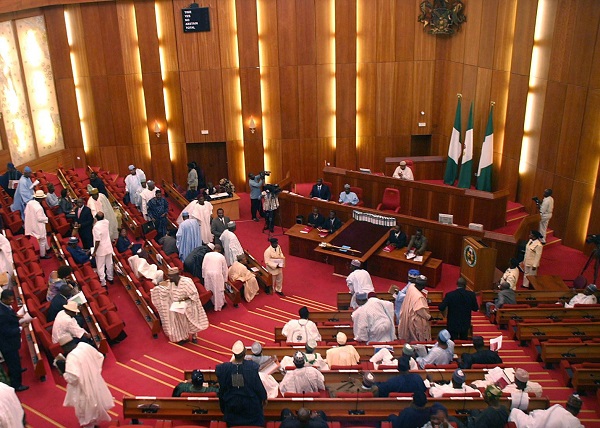FG insures 89,000 employees under N15 billion group life scheme
 The Federal Government is said to have settled about N15 billion premiums under the Group Life Insurance scheme to insure it’s over 89,000 workers across the country in the current financial year.
The Federal Government is said to have settled about N15 billion premiums under the Group Life Insurance scheme to insure it’s over 89,000 workers across the country in the current financial year.
Although government had in the past, struggled to renew the Group life insurance for its workers, owing to the late passage of budget into law, findings show that insurance industry had to engage and convinced them on the need to insure these workers against unforeseen incidents at the workplace
With the premium now fully paid, the family of deceased civil servants will now be entitled to death benefit claims that will sustain and cater for them, including the wives and children they left behind.
In Nigeria, Group life cover is a joint regulation of the National Insurance Commission (NAICOM), and the National Pension Commission (PenCom). Section 9 (3) of the Pension Reform Act 2004 (now PRA 2014), requires every employer, to which the Act applies, to maintain Life Insurance Policy in favour of the employee for a minimum of three times the annual total emolument of the employee. The policy provides cover to the insured against death.
Confirming this development at the weekend, the President, Nigerian Council of Registered Insurance Brokers (NCRIB), Dr. Bola Onigbogi, said: “The 2020 Group Life is off the schedule because full premium has been paid on the account for the current year. There is no lapse in cover at the moment.”
Onigbogi, who was represented by the Vice President of the Council, Tunde Oguntade, at a meeting with the NCRIB’s officials, urged the Federal Government to always engage the services of the registered insurance brokers to mitigate the risk of contract failures.
She expressed displeasure at the government’s failure to engage insurance brokers in its insurance arrangement, adding that the Council will continue to dialogue with the government on the need to always engage their services in such arrangements.
“On government contracts, NCRIB is talking to ministers through our liaison committee and leadership that most contract failures were as a result of not involving insurance brokers in those arrangements. With this, all those contracts failures will not be there, because contract failures are sometimes premeditated and they do not want to listen to us,” she pointed out.
Stating that insurance brokers have been engaging the federal government on roads, bridges and rails under construction, to avoid contract failures, she said the importance of brokers in contract arrangement cannot be over-emphasised.
To her, “If they don’t want the contracts to fail, they know what to do. Imagine someone who goes to a road-side agent to ask for an insurance policy. NCRIB was the one who punctured all that and said it was wrong. We will continue to do our best to engage the government, and as long as the government is willing to do the right thing, NCRIB will be there to support them.”
Similarly, the Executive Secretary, NCRIB, Fatal Adegbenro, while reacting to the contracts, said the Council is in very close contact with government agencies, and writes to inform them every year on the need to engage the services of the registered insurance brokers.
He noted that the Council’s collaborative relationship with NAICOM is very cordial, to ensure that fake brokers are eliminated from the system.
“Everybody knows that in every clime, we have fake teachers, fake police, fake lawyers and what have you. You cannot wish that away in any society, but with the cooperative effort between NAICOM and NCRIB, a lot of things are being done to minimize this to the barest minimum,” he stressed.
Meanwhile, the Director, Centre for Pension Right Advocacy (CPRA), Ivor Takor, said: “the Pension Reforms Act (PRA) 2014 requires every employer of labour, which, in this case, is the federal government, to procure group Life cover for its employees, failure to which such employer (FG) must compensate the families of deceased civil servants. If this has not been done by the government, then, this is a breach of law to which there are sanctions attached if it were to be in the private sector.”







